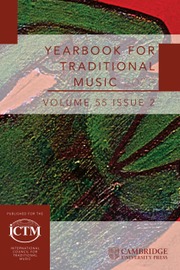No CrossRef data available.
Article contents
Entre guerra, política e “uma visão positiva lá de casa”: Descortinando as primeiras experiências moçambicanas na senda da “World Music” (1987-1994)
Published online by Cambridge University Press: 05 February 2024
Abstract
Este artigo analisa a internacionalização de música moçambicana no âmbito da categoria de mercado “World Music”, durante o período de transição de um sistema de partido único e socialista, para um sistema multipartidário e liberal (1987-1994), enquadrado no processo de “construção da nação”. A análise comparativa de três casos – Orquestra Marrabenta Star de Moçambique, a canção “Baila Maria” do Grupo RM (Amoya), e os discos de Eyuphuro e Ghorwane (Real World Records) – confirma o recurso à World Music enquanto alternativa à letargia da indústria fonográfica do país e como veículo para promover internacionalmente a política musical de Moçambique durante a guerra civil.
- Type
- Research Article
- Information
- Yearbook for Traditional Music , Volume 55 , Special Issue 2: 46th World Conference of the ICTM , December 2023 , pp. 221 - 248
- Copyright
- © The Author(s) 2024. Published by Cambridge University Press of the International Council for Traditions of Music and Dance




